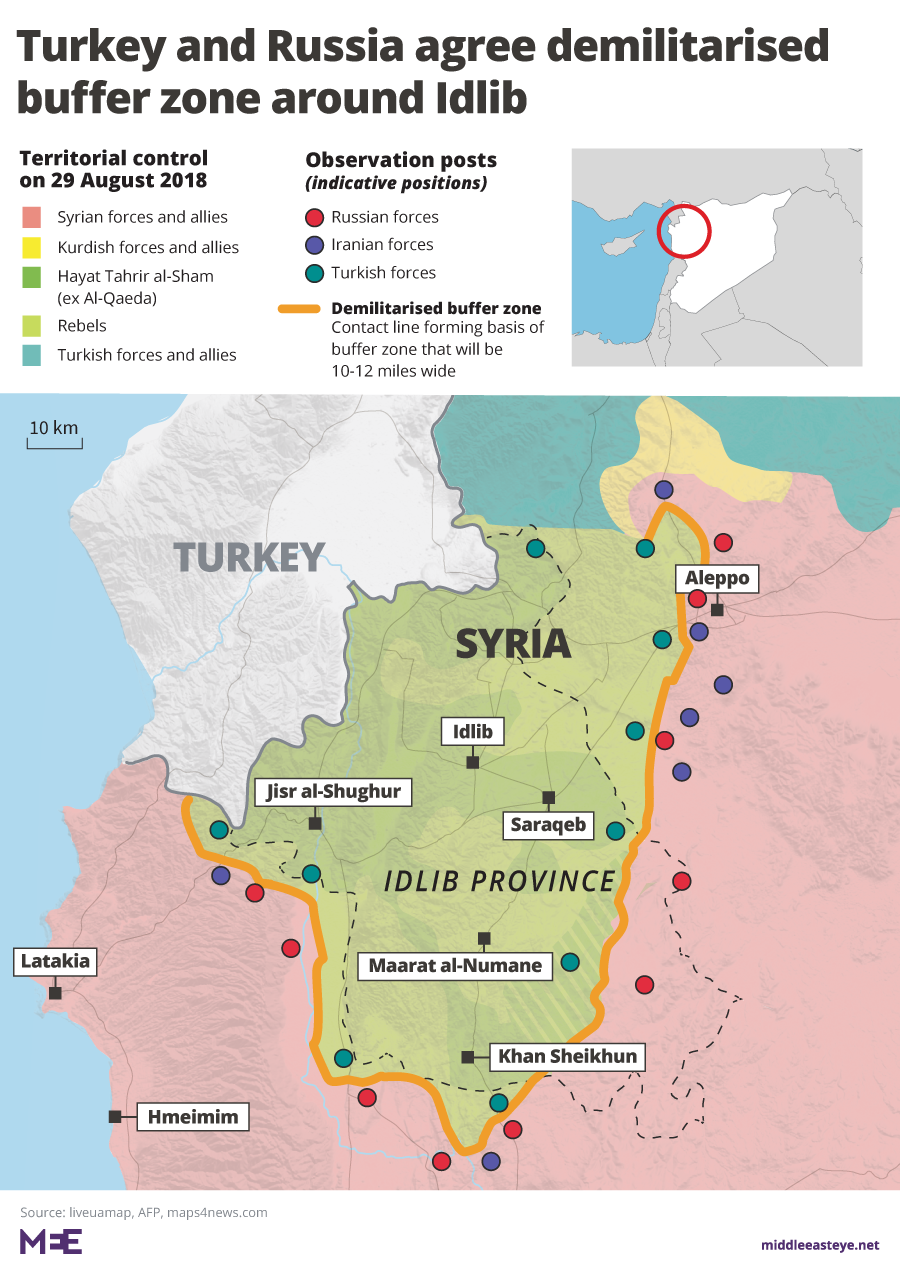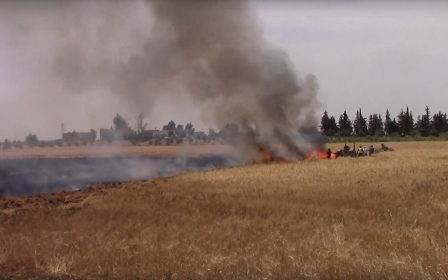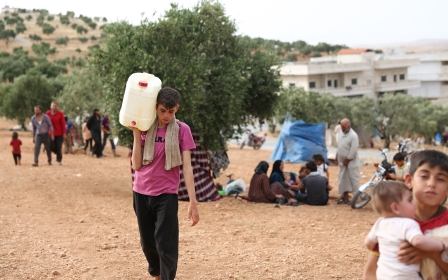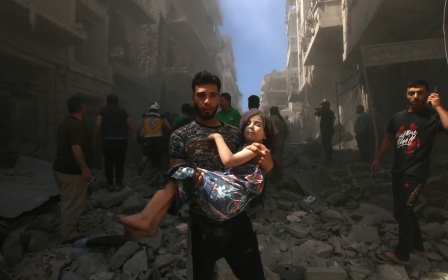No ceasefire in Idlib: Turkish soldiers wounded as clashes continue despite 'truce'
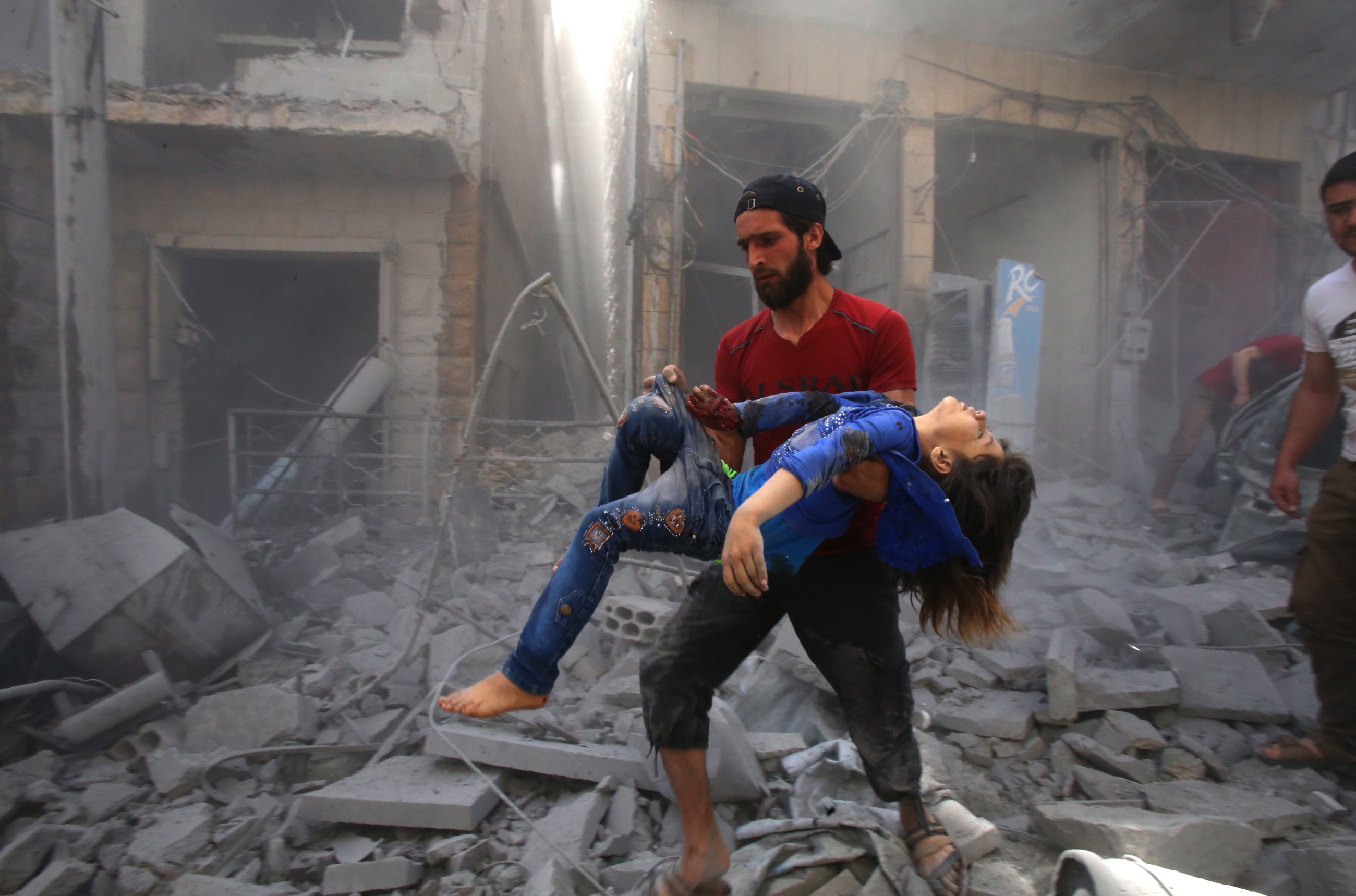
Fighting has raged in Syria's Idlib province despite Russian claims of a ceasefire, with Turkey announcing that one of its observation stations in the Syrian rebel-held enclave had been attacked, apparently by President Bashar al-Assad's forces.
Russia's military claimed on Wednesday that under Turkish and Russian mediation, beginning from midnight, an agreement on a complete ceasefire had been reached in Idlib province.
Pro-Syrian government forces, including the Russian military, have for weeks been staging a brutal assault on the rebel-held enclave, killing scores and displacing hundreds of thousands.
'We think that the regime's attacks are deliberate and Turkey will do what is necessary if the attacks continue'
- Mevlut Cavusoglu, Turkish Foreign Minister
However, Turkish officials and Syrian rebels denied such an agreement had been reached, with Ankara noting that its forces had even been attacked.
“Thirty-five mortar rounds were fired from the Syrian regime-held territory of al-Shariah to the 10th observation point near Zawiyah Mountain. Our assessment is that the attack was intentional," the Turkish defence ministry said in a statement on Thursday.
New MEE newsletter: Jerusalem Dispatch
Sign up to get the latest insights and analysis on Israel-Palestine, alongside Turkey Unpacked and other MEE newsletters
"As a result of the attack, three Turkish soldiers were lightly wounded and some facilities, equipment and material were partly damaged.”
The ministry said it had raised the attack with Russian counterparts as a fellow guarantor of the now-defunct de-escalation zone around rebel territory agreed in September.
Turkish Foreign Minister Mevlut Cavusoglu said Ankara would not hesitate to retaliate.
"It is not possible to say a ceasefire was fully established in Syria's Idlib but efforts continue. We think that the regime's attacks are deliberate and Turkey will do what is necessary if the attacks continue," he said.
Fighting continues
A Turkish official told Middle East Eye that, despite its best efforts, rebel-backer Ankara had not reached a truce agreement with Russia.
The official, who spoke under condition of anonymity, said Turkey was pushing for a complete ceasefire, but that Assad's forces were insisting on pursuing their offensive.
“The Russians cannot convince the regime to stop the offensive,” the official added.
'The Russians cannot convince the regime to stop the offensive'
- Turkish official
Syrian opposition forces also denied that there was a ceasefire in place.
Naji Mustafa, spokesman for National Liberation Front rebel grouping, denied the Russian claim in a statement to Turkish reporters.
Air strikes pounded Idlib's west as Russia announced the apparent ceasefire and continued after the military's statement, according to the UK-based Syrian Observatory for Human Rights activist group.
"Helicopters also dropped barrel bombs on al-Hbit, the vicinity of Kafr Nubl, Khan Shaykhun and Ihsim in the southern countryside of Idlib, raising to 45 the number of air strikes by the regime’s warplanes,” the Observatory said.
Meanwhile Syrian rebels continued their counterattacks on Thursday and expelled pro-Assad forces from four strategic points in south Idlib after establishing a joint war room with different rebel groups, Turkish state-run Anadolu Agency reported.
“We seized two settlements and two strategic hills in Hama countryside. We seized much military equipment and neutralised regime elements,” Mustafa was quoted as saying.
Omer Ozkizilcik, a Syria expert at Ankara-based conservative think tank SETA, said the Syrian government hadn't paused its military operations in Idlib overnight and the ceasefire never took place.
“The opposition didn’t agree with the ceasefire because Assad's forces didn’t actually stop attacking,” he told MEE.
"In any case, these kind of declarations only stop the exchange of territory. They don't freeze the actual war. That's why it is called de-escalation zone."
Middle East Eye delivers independent and unrivalled coverage and analysis of the Middle East, North Africa and beyond. To learn more about republishing this content and the associated fees, please fill out this form. More about MEE can be found here.


